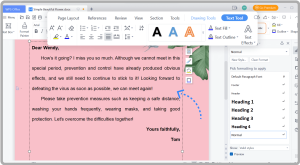In an age where digital privacy is increasingly under threat and internet restrictions are tightening in many parts of the world, more users are turning to virtual private networks to protect their activity and reclaim open access to information. Among the various types of VPN technologies available, the obfuscated VPN has gained prominence for its ability to hide the very fact that a VPN is being used. This makes it an indispensable tool for those in restrictive digital environments or anyone seeking an extra layer of stealth while browsing or working online.
Understanding how to choose the right obfuscated VPN is not as simple as selecting the most expensive option or the one with the most flashy marketing. The decision requires a deeper understanding of how VPNs work, how obfuscation is implemented, and what features and performance benchmarks truly matter. Whether you’re trying to access restricted content, work remotely in a high-surveillance country, or simply ensure your data travels discreetly across the internet, there are multiple factors you should weigh before committing to any one service.
At its core, an obfuscated VPN disguises VPN traffic to make it look like regular, unencrypted internet traffic. This is essential in countries or networks where VPN usage is blocked or monitored. Standard VPN protocols can be identified by firewalls and deep packet inspection technologies, which may lead to traffic being throttled, blocked, or flagged. Obfuscation methods hide this traffic, allowing users to bypass network censorship, surveillance, and geo-restrictions more effectively. However, not all obfuscation techniques are created equal, and not every VPN provider implements them in a reliable or secure way.
The first consideration when evaluating an obfuscated VPN is the method it uses for obfuscation. Some rely on modified VPN protocols that incorporate stealth features, while others wrap the VPN traffic in an additional layer that mimics regular HTTPS traffic. There are also protocols designed from the ground up with obfuscation in mind. The technique used can greatly affect performance, compatibility, and how successful the VPN is at bypassing restrictions. It’s important to know which protocol or system is used and whether it has been tested under real-world conditions.
Another major point of consideration is the jurisdiction under which the VPN provider operates. The laws of the country where the company is based can have a profound impact on your privacy. Some jurisdictions require companies to store user data or share it with authorities upon request. An obfuscated VPN is designed to hide your traffic, but if the provider is forced by law to log your data, that undermines its purpose. A trustworthy provider operating in a privacy-respecting jurisdiction is therefore crucial.
Server availability is also an important factor when selecting an obfuscated VPN. While many VPN providers boast a wide range of servers across the globe, only a subset may support obfuscation. Access to these servers should be easy, clearly documented, and supported on the apps or clients you intend to use. Furthermore, having obfuscated servers in geographically strategic locations can improve speed and access to region-locked content. The broader and more reliable the obfuscated network, the better your overall experience will be.
Performance is another core element to examine. Obfuscation, by its nature, adds overhead to the standard VPN connection. This can lead to slower speeds, increased latency, or occasional disconnections. When evaluating an obfuscated VPN, it’s essential to consider how well it balances security and speed. High-quality implementations will still offer strong performance, even when obfuscation is in use, while poorly designed ones may render the connection frustratingly slow. For users working remotely, streaming content, or conducting sensitive communication, reliability is non-negotiable.
Device compatibility should not be overlooked. A good obfuscated VPN should work across all major platforms, including Windows, macOS, Linux, iOS, and Android. It should also support obfuscation features across those devices, not just on desktop. This becomes especially important for users who rely on mobile data or who need VPN protection across multiple devices. Whether you’re accessing the internet through your phone in a restrictive country or streaming content from a laptop, seamless obfuscation must be available across the board.
Ease of use plays a role in how effective a VPN can be for the average user. Even the most secure obfuscated VPN can fall short if it’s overly technical or difficult to configure. The ideal solution offers both simplicity and power: an interface that allows novice users to connect quickly, while still providing advanced features and customisation for those who need it. This includes easy toggling of obfuscation features, auto-connect on startup, and clear indications of whether traffic is being obfuscated.
Security standards must be uncompromising. Obfuscation is just one layer in a broader privacy strategy. The VPN should use robust encryption protocols, have a strict no-logs policy, and include additional features such as a kill switch, DNS leak protection, and secure DNS handling. Together, these ensure that your activities remain private, even if the VPN connection drops or is compromised. Obfuscation without solid security fundamentals is like a locked door on a house with no walls.
Another point to assess is transparency. Providers who offer obfuscated VPN services should be transparent about how obfuscation works on their platform, which servers support it, and what limitations (if any) exist. Ideally, the provider should have undergone independent security audits, and while not always common, such audits add a layer of trust for discerning users. Clear documentation, responsive support, and a track record of operating in high-censorship environments can further distinguish a reliable provider from a risky one.
Community and real-world usage reports can offer insights that polished websites and marketing materials may not. If possible, it’s wise to research how the obfuscated VPN performs in countries known for internet censorship. User forums, technical communities, and open-source discussions often reveal whether a VPN’s obfuscation actually holds up under scrutiny, especially in places with sophisticated blocking mechanisms. Real-world feedback can expose both strengths and flaws that are not visible during standard trials.
Price may influence the decision, but it should never be the sole determinant. Cheaper or even free VPNs often lack robust obfuscation, cut corners on security, or operate under dubious business models. Obfuscation requires infrastructure, expertise, and maintenance. A well-functioning obfuscated VPN is an investment in privacy and access, and should be treated as such. However, the pricing should be clear, without hidden fees, and offer good value for the level of service provided.
Support is another area often underestimated. In many cases, users will be relying on obfuscated VPN services in difficult or sensitive circumstances. Fast, knowledgeable, and secure customer support can make a huge difference when troubleshooting connectivity in restricted environments. Providers that offer 24/7 support, detailed guides, and secure communications channels provide a much more reassuring experience than those that leave users to figure things out alone.
Lastly, scalability and future-proofing should not be ignored. Internet censorship is constantly evolving, and so are the techniques used to bypass it. The obfuscated VPN you choose today must be able to adapt to new threats, changes in protocol detection methods, and technological shifts. A forward-thinking provider will invest in continual development, monitor censorship trends, and regularly update their obfuscation techniques to stay ahead.
In conclusion, choosing an obfuscated VPN requires thoughtful evaluation of multiple factors. It’s not just about hiding traffic; it’s about doing so effectively, reliably, and in a way that supports your wider privacy and access goals. From encryption strength and server distribution to usability and transparency, every aspect must align to deliver a truly secure and seamless experience. Whether you are a journalist, a remote worker, a traveller, or simply someone who values their digital freedom, the right obfuscated VPN can be a powerful ally — but only if selected with care and discernment.




